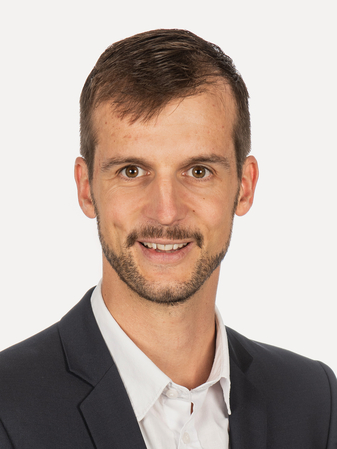Digital transformation is a fundamental, pervasive social phenomenon affecting every area of society. The associated radical changes are often compared with those of the first industrial revolution.
The fast and radically changing Swiss working and professional world is more strongly affected than other areas. What is the role of humans in a digitalised world? What kinds of skill set count in a digital society? What is the impact of new technologies on work and leadership processes? The Interdisciplinary Cluster (IC) “Digital Transformation of the Working World” has been dedicated to this thematic area since 2018, ending in 2023.
The Lucerne University of Applied Sciences and Arts (HSLU) invested in the development and implementation of interdisciplinary projects revolving around digital transformation in the working world, the interaction between technology and management models, and the effects of digitalisation on both individuals and for society at large. To produce sustainable results for the benefit of industry, society and politics alike, the topic was approached from an overarching perspective. Accordingly, specialist teams collaborated across Schools and disciplines: the IC is co-headed by the engineer Lukas Müller (School of Engineering and Architecture) and social anthropologist Professor Simone Gretler Heusser (School of Social Work). They were supported by a range of experts from the Schools of Engineering and Architecture, Business, Information Technology, Social Work, Design, Film and Art, and Music.
The IC invested in building and showcasing pathways to creating a working world that is future-oriented and socially responsible in equal parts. Focused and in pursuit of a clear mission, it coordinated the transdisciplinary collaboration between numerous experts from across the HSLU’s Schools, thereby generating new work priorities and fields of competence and positioning the university as a strong partner in a national and international context.
In the framework of this interdisciplinary cluster, five interconnected focal topics were investigated. The associated research projects investigated questions associated with two focal themes:
The focal themes
- Competitive and adaptive workers
- Resilient and innovative organisation
- Predictive and use-centred technology
- Digitalised and personalised education
- Data-based and human-centred health
Competitive and adaptive workers
In this focal theme, the effects of digitalisation on the economy, on society, on the welfare state, on jobs and business locations, professions, expertise and careers, and on individuals were examined. Learn more here.
Resilient and innovative organisation
This focus theme revolved around leadership and management approaches to handling organisational changes associated with digital transformation. Learn more here.
Predictive and use-centred technology
This focal theme revolved around the driving forces of technological change including sensor technology, robotics, automation, artificial intelligence and servitisation. Aspects of economic efficiency, management and HRM, and artistic and social perspectives also played an important role. Learn more here.
Digitalised and personalised education
This focal theme centred on interdisciplinary projects that investigated the effects and the potential of data and digitalisation within the educational sector and develop solutions for personalised forms of education. Learn more here.
Data-based and human-centred health
This focal theme revolved around interdisciplinary projects that investigated the effects and the potential of data and digitalisation within the health sector and develop future-proof, human-centred and personalised solutions. Learn more here.
Core team
The IC’s core team comprised representatives of the HSLU’s six Schools. They provided guidance and support for the IC’s thematic development and its internal networking efforts.
- Prof. Dr. Antonio Baldassarre, Head of Research and Development and Vice-Dean, Lucerne School of Music
- Prof. Dr. Christoph Hauser, Head of CC Management and Law, Lucerne School of Business
- Prof. Dr. Sabine Junginger, Head of CC Design and Management, Lucerne School of Design, Film and Art (from 2024 onwards: Northumbria University)
- Prof. Dr. Peter Kels, Lecturer, Lucerne School of Business
- Prof. Ute Klotz, Lecturer, Lucerne School of Computer Science and Information Technology
- Prof. Dr. Gerhard Székely, Head of the Institute of Mechanical Engineering and Energy Technology, Lucerne School of Engineering and Architecture
- Prof. Dr. Marc Zimmermann,
- Lecturer and Project Head, Lucerne School of Social Work
Advisory Board
The IC’s Advisory Board comprised external specialists representing different perspectives on digital transformation. Their task was to critically appraise the IC’s thematic development and to help it to cultivate its external networks.
- Prof. Dr. Christoph Igel, Member of the Board of the Fraunhofer Institute for Communication, Information Processing and Ergonomics FKIE
- Edith Lang, Head of the Office of Social Services, Canton of Lucerne
- Irmgard Nübler, Senior Economist at Interrnational Labour Organization Research Department
- Barbara Rüttimann, President, Netzwerk Unternehmen Verantwortung
- Prof. Dr. Lothar Thiele, ETH Zürich, Department of Information Technology and Electrical Engineering, Institute Computer Engineering and Networks Laboratory






